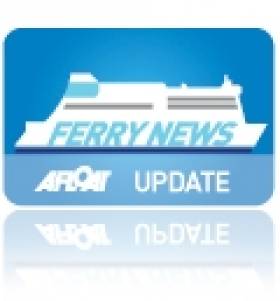Displaying items by tag: Tour de France
Celtic Link Ferries to Go Cycling with Giro D’Italia
#CelticGiroDItalia – Celtic Link Ferries Italian flagged ro-pax Celtic Horizon will be carrying the cycling cavalcade for one of the world's greatest cycling events, the prestigious 2014 Giro D'Italia, which takes place next May with an all island staged route, writes Jehan Ashmore.
According to Wexford Chamber of Commerce, the ferry operator which runs between Rosslare-Cherbourg, recently transported a fleet of Volkswagon vehicles to see this year's Giro D'Italia in Naples.
The Giro D'Italia in 2014 will stage its 'Grande Partenza', the Big Start in Belfast and will visit Armagh and also Dublin between 10-12 May.
Hosting three-day event, which will be its 97th edition, will cost in the region of €5,000,000.
It is also estimated the event will generate to the value of €12m and which has the backing of Northern Irish Tourist Board (NITB) and Tourism Ireland.
"Celtic Link Ferries are delighted to be involved with this great event which will be the focus of the entirety of Europe" said Tourist Passenger Manager, Rory McCall.
"We are a perfect fit for something like this" added McCall. "Celtic Link Ferries will give intending passengers the best value means of travelling between Europe and Ireland with a vehicle".
Celtic Horizon which is registered in the Adriatic Sea port of Bari, has a total 2.25 kilometres of vehicle lane metres spread across its decks from where traffic is transported on the thrice weekly operated service.
Afloat.ie adds that Rosslare Europort is no stranger to such sport-related logistics, as the Tour de France made its first and only visit to Ireland in 1998.
On that occasion, ferries transported the cycling cavalcade from the Wexford port and also out of Cork to Roscoff.





























































